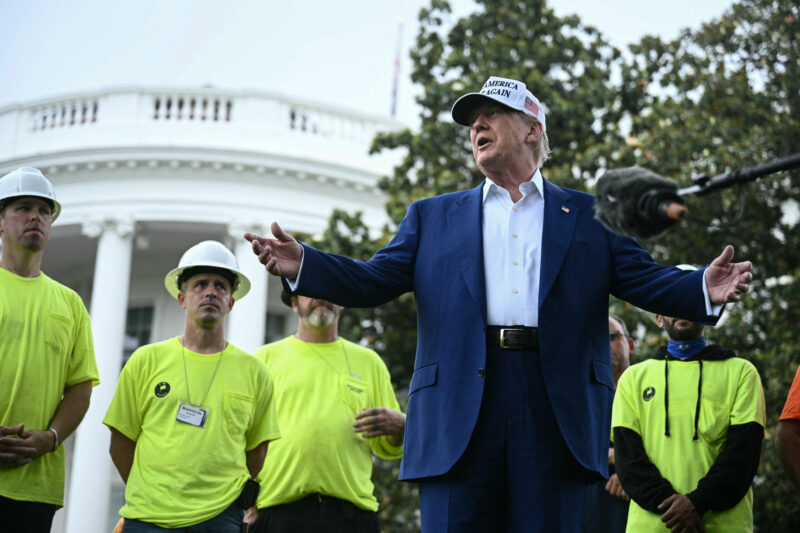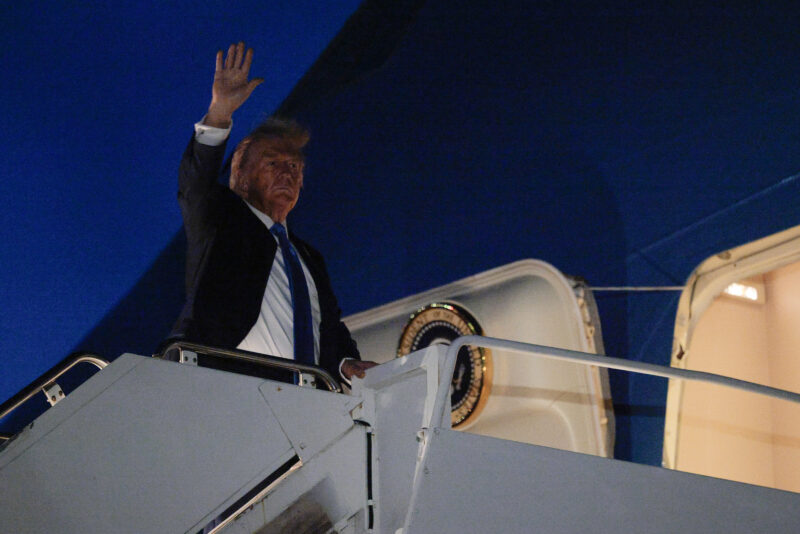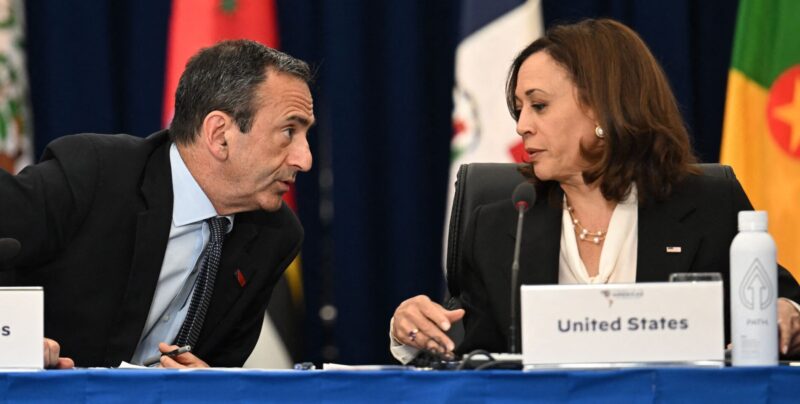Israel’s consul general in Dubai builds new ties
‘The end goal is to make it normal to have Israel, Israelis and Israeli culture here in Dubai,’ Liron Zaslansky told Jewish Insider of her mission in the Gulf state

courtesy
Israel's Consul General in Dubai Liron Zaslansky
Liron Zaslansky is no stranger to Israeli diplomacy. A veteran of Israel’s Ministry of Foreign Affairs, the 44-year-old diplomat has served at no fewer than six missions from Europe to South America and the Arab world. But now, as Israel’s first-ever consul general in Dubai, United Arab Emirates, she is embarking on new territory – literally.
“We are the first generation of Israelis here,” Zaslansky, who received her diplomatic credentials last September, two years after Israel signed the historic Abraham Accords normalization agreements with the UAE and Bahrain, told Jewish Insider in an interview.
“We are laying down the foundations of the bilateral agreements that were signed between our countries,” she continued. “And we are doing our best to get to know the other side and to let the other side know us; it’s a great responsibility.”
While there have been some logistical hurdles to setting up a diplomatic operation from scratch – Israel’s consulate in Dubai formally opened the doors to its permanent offices earlier this week – Zaslansky said she sees starting such a mission as an opportunity, rather than a challenge.
“It’s been up to us to meet people, to initiate relations and to see how we make contact with the authorities here in Dubai,” Zaslansky said. “So, you can look at that as a challenge, but I see it as an opportunity because we get to start afresh, and that is something that does not happen very often.”
Living in Dubai with her husband, Ohad Horsandi, who is Israel’s deputy ambassador to the UAE in Abu Dhabi, and their three children, Zaslansky said the family received an unexpectedly warm welcome in a place that less than three years ago had no formal diplomatic ties with Israel.
“My theory is that it takes at least a year to get used to a new place, until you’re settled in, until your family is settled in, and until you all feel at home,” she theorized. “But in Dubai, that happened almost immediately – after only two or three months, it felt like we’d been here for forever.”
With postings in Brussels, Berlin, Costa Rica and even as Israel’s special envoy to the Arabian Gulf from 2008-2010, Zaslansky noted that in the UAE, where the bulk of its residents are not natives, the focus is specifically on making new people feel welcome.
“It’s a country that wants its residents to feel comfortable and they do that extraordinarily,” she said. “There is a pace of events, doors opening and an effort to make sure you don’t feel like the new kid on the block.”
Responsible for developing Israel’s public diplomacy in the Gulf state, fostering its business and economic ties and providing services to the thousands of Israelis who visit the Emirates each week – there are currently 12 daily flights between Tel Aviv and Dubai – Zaslansky said she is taking a slow and methodical approach to her country’s newfound regional ally.
“We’ve been working slowly and thinking carefully about everything,” she said, sharing with JI the three main pillars of her focus in Dubai.
“First, we are trying to create a higher profile for Israel in Dubai,” explained Zaslansky. “We want to give Emiratis and other nationals living here a glimpse of Israel because [before the Abraham Accords] the region was used to only seeing Israel through the pages of newspapers and politics.”
Among the activities that have already taken place, the consul general described Israel’s participation in a food festival — which included the culinary offerings of Israeli celebrity chef, Tom Aviv — and the first-ever Holocaust Remembrance Day event held last January at the Crossroads of Civilization Museum.
“We use a lot of social media to put out our messages because we really want the peace to be brought down to the people-to-people level,” Zaslansky explained. “The end goal is to make it a normal thing to have Israel, Israelis and Israeli culture here in Dubai so that it is not something that is out of the ordinary and so the bilateral relations are the same here as they are in the U.S. or in Europe.”
The second pillar, according to Zaslansky, is economic.
“When it comes to the economy, the opportunities in Dubai are endless,” she continued. “We are trying to find the areas where we can complement each other and are doing a lot in the field of cybersecurity, fintech, construction tech. We are also building the strategic relations between institutions so that we can make this relationship long-lasting.”
One area where Zaslansky is focusing is on the tourism sector, with an emphasis on encouraging Emiratis to travel to Israel. She estimated that more than half a million Israelis have visited the UAE since the signing of the Abraham Accords, but the numbers flowing the other way are still very low.
“Our challenge is to increase those numbers,” she stated, estimating that since the signing of the Accords, roughly 2,000 Emiratis have visited Israel for tourism or business. “There’s a lot of curiosity, but we don’t see the traffic yet.”
Zaslansky believes, however, that it’s just a matter of time.
“Israelis are very easy when it comes to traveling; you just get on your flight and you go explore, it’s in our nature,” she said. “I don’t think the Emiratis are the same. I think they are more selective, they are used to certain levels of hospitality, and it takes them more time.”
The third pillar involves ensuring that Israelis visiting short- or long-term have all the consular services they need, Zaslansky said, adding that initial challenges, such as Israelis not being aware of or fully understanding Emirati culture or local laws, appear to have dissipated.
“Those who stayed here or who are coming now are well aware of the differences, especially in business culture, between the two places,” she said. “People ask us for our advice, and we tell them to take their time and first build trust, which is different from Israel.”
Asked about recent events in Israel, including comments by ministers in Prime Minister Benjamin Netanyahu’s government about the UAE or about Palestinians, Zaslansky said that diplomatic relations in that sense “are the same as the relationship between Israel and any other country.”
“The main thing that is different here is the Abraham Accords,” she said. “When things happen in Israel, whether it’s statements, whether it’s the Palestinian issue, we talk about them – the Accords are not only economic, but there is also a very strong political relationship.”
“We might not agree on everything, but we do have the ability to speak about it and, in my opinion, that will make the relationship stronger in the future,” Zaslansky concluded.


































